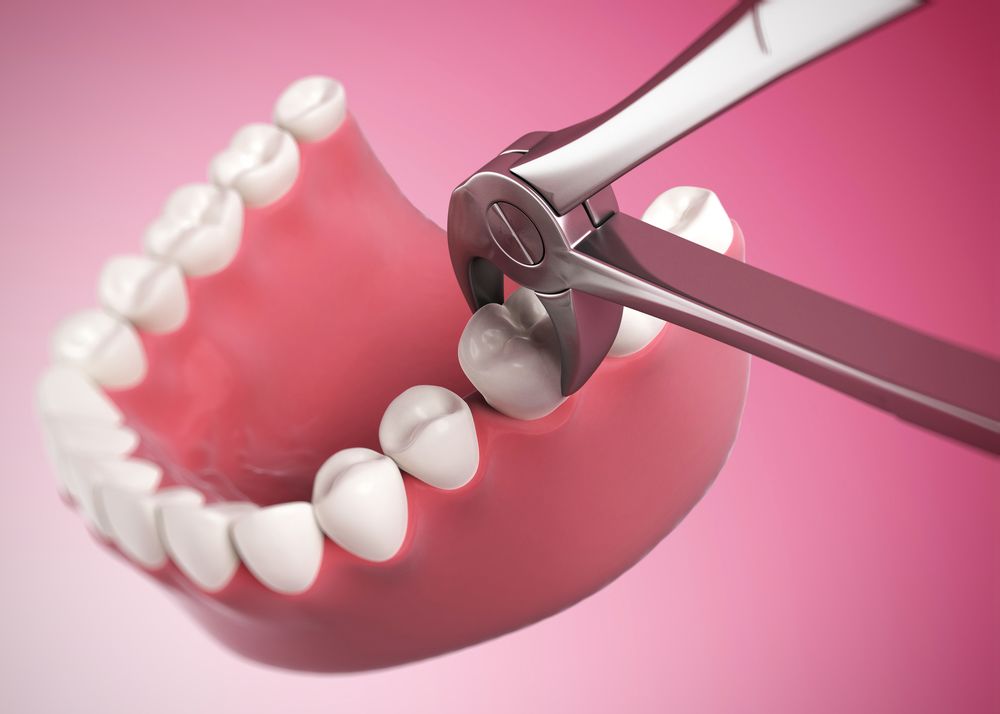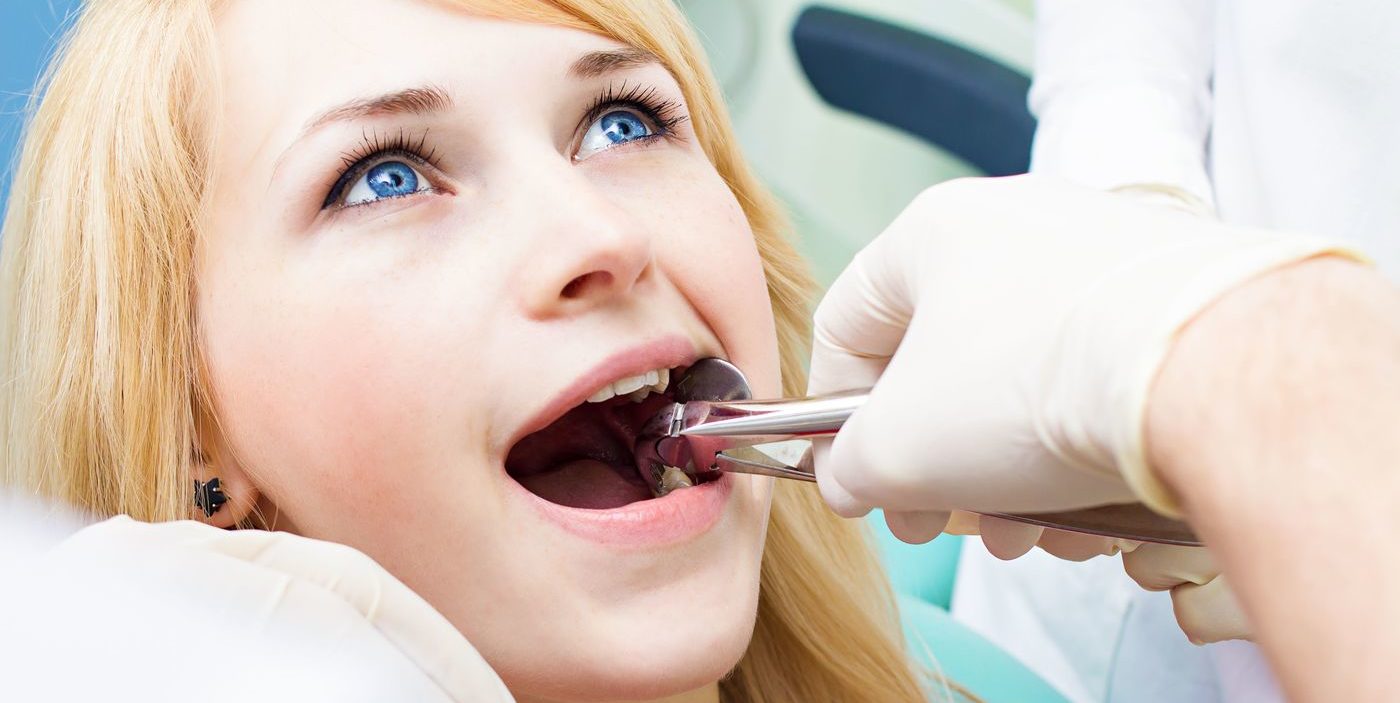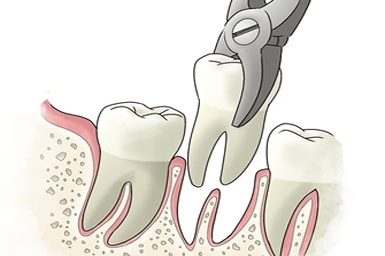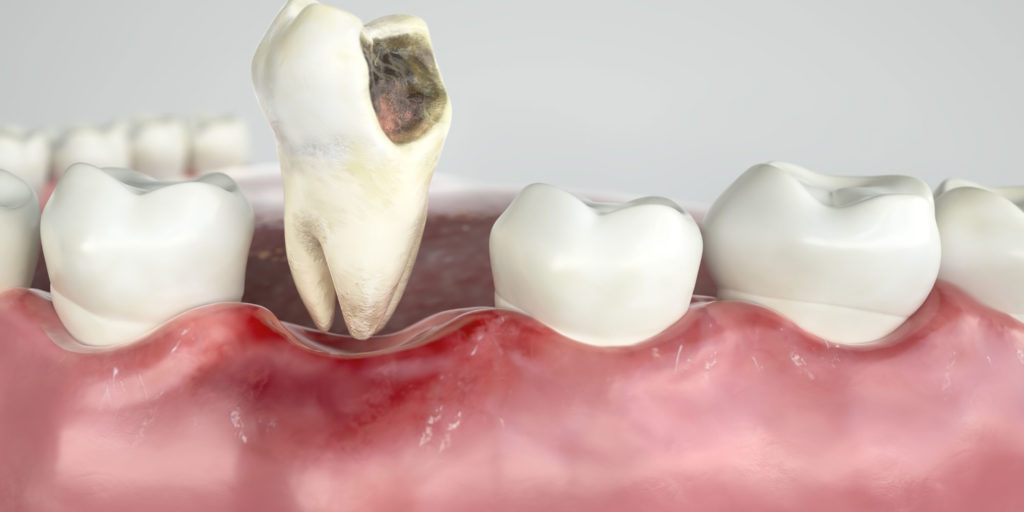






Tooth extraction is performed by a dentist or oral surgeon and is a relatively quick outpatient procedure with either local, general, intravenous anesthesia, or a combination. Removing visible teeth is a simple extraction. Teeth that are broken, below the surface, or impacted require a more involved procedure.

Excessive tooth decay, tooth infection, and crowding can all require a tooth extraction. Those who get braces may need one or two teeth removed to provide room for their other teeth as they shift into place. Additionally, those who are undergoing chemotherapy or are about to have an organ transplant may need compromised teeth removed in order to keep their mouth healthy.
Before removing a tooth, your dentist will thoroughly review your medical and dental history and take the appropriate X-rays. X-rays reveal the length, shape, and position of the tooth and surrounding bone. From this information, your dentist can determine the best way to remove the tooth or whether to refer you to an oral surgeon.
Before removal during a simple extraction, they will numb the area around your tooth using local anesthetic. However, during a more complicated removal, called a surgical extraction, your oral surgeon might administer intravenous (IV) anesthesia, which can range from conscious sedation to general anesthesia, which will put you to sleep. If this is the case, arrange for someone to drive you home after the procedure and stay with you until the effects wear off.
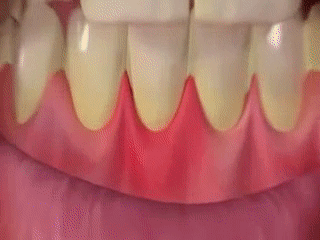
![]() Choose toothpaste that’s labeled as being specifically made for sensitive teeth. These toothpastes won’t have any irritating ingredients, and may have desensitizing ingredients that help block the discomfort from traveling to the nerve of the tooth.
Choose toothpaste that’s labeled as being specifically made for sensitive teeth. These toothpastes won’t have any irritating ingredients, and may have desensitizing ingredients that help block the discomfort from traveling to the nerve of the tooth.
![]() When it comes to mouthwash, choose an alcohol-free mouth rinse, as it will be less irritating to sensitive teeth.
When it comes to mouthwash, choose an alcohol-free mouth rinse, as it will be less irritating to sensitive teeth.
![]() Using softer toothbrushes and brushing more gently can also help. Soft toothbrushes will be labeled as such.
Using softer toothbrushes and brushing more gently can also help. Soft toothbrushes will be labeled as such.
![]() Receding gums can be treated by brushing more gently and maintaining good oral hygiene.
Receding gums can be treated by brushing more gently and maintaining good oral hygiene.
![]() In cases of intense sensitivity and discomfort due to severe gum recession, your dentist may recommend using a gum graft. This procedure involves taking tissue from the palate and placing it over the root to protect the tooth.
In cases of intense sensitivity and discomfort due to severe gum recession, your dentist may recommend using a gum graft. This procedure involves taking tissue from the palate and placing it over the root to protect the tooth.
![]() You can train yourself to stop clenching or grinding your teeth by being mindful not to do so during the day. Reducing stress and caffeine before bed can also help prevent you from grinding your teeth at night. If this doesn’t work, you can use a mouthguard at night to prevent the grinding from damaging your teeth.
You can train yourself to stop clenching or grinding your teeth by being mindful not to do so during the day. Reducing stress and caffeine before bed can also help prevent you from grinding your teeth at night. If this doesn’t work, you can use a mouthguard at night to prevent the grinding from damaging your teeth.
